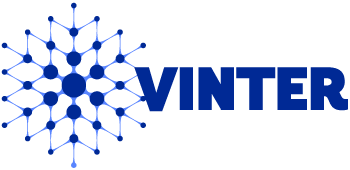Analytical and Reporting Solutions in Recruitment Software
Analytical and Reporting Solutions in Recruitment Software
Recruitment processes are essential for companies to find and hire talented employees. However, these processes go beyond finding the right people. They also require accurate data to optimize workflows, increase efficiency, and support strategic decisions. Analytical and reporting solutions in recruitment software help with this. Analytical tools provide data-driven insights, while advanced reporting systems improve transparency and efficiency. Companies that keep up with developments gain a lasting advantage in the talent race. They secure a step ahead in the business world.
The Importance of Analytics in Recruitment Processes
Analytical solutions help make informed decisions at every stage of the recruitment process. They not only analyze past data but also provide insights into future needs. Analytical solutions are crucial in the following areas:
Application Volume and Quality Analysis: Analyzing the number and qualifications of applicants helps determine if a position is receiving enough interest. It also identifies whether the targeted candidate profile has been reached.
Process Efficiency: Metrics like job posting creation, candidate screening, and interview durations allow analysis of the recruitment process timeline. For instance, analyzing the average time it takes to fill a position can identify areas where processes can be accelerated.
Candidate Behavior Analysis: Examining candidates’ behaviors during the application process helps pinpoint difficulties in the application form. It also identifies why some candidates abandon the process, improving the candidate experience.
Benefits of Reporting Solutions
Reporting solutions go beyond just collecting data; they visualize it and make it actionable for decision-makers. Key advantages of reporting solutions include:
Dynamic Dashboards: Real-time panels help monitor progress and identify recruitment process bottlenecks.
Standardized Reports: Standard reports across the company allow performance comparison and alignment assessment with organizational goals.
AI-Powered Decision Support Systems
Artificial intelligence improves both analytical and reporting processes. Additionally, AI plays a critical role in supporting decision-making:
Sentiment Analysis: Sentiment analysis on interview notes or resumes reveals candidates’ communication styles, motivation, and leadership potential.
Interview and Evaluation Processes: AI provides summaries of candidates’ strengths and weaknesses based on evaluation criteria.
Objective Decision-Making: AI minimizes human error or bias, resulting in fairer and more effective decisions.
These decision support systems offer HR teams not only operational support but also a strategic advantage.
Tips for Recruitment Processes
- Define Your Goals: Identify the metrics that matter to you.
- Choose the Right Software: Select software that aligns with your business needs for maximum benefits.
- Team Training: Improve the analytical skills of the teams using the software.
- Continuous Improvement: Regularly optimize processes using reporting data.
Incorporating analytical and reporting tools into recruitment processes enables companies to improve efficiency.
It helps companies make better decisions and attract top talent. Lastly, leveraging AI for data insights enhances the recruitment process further, providing a strategic advantage.

